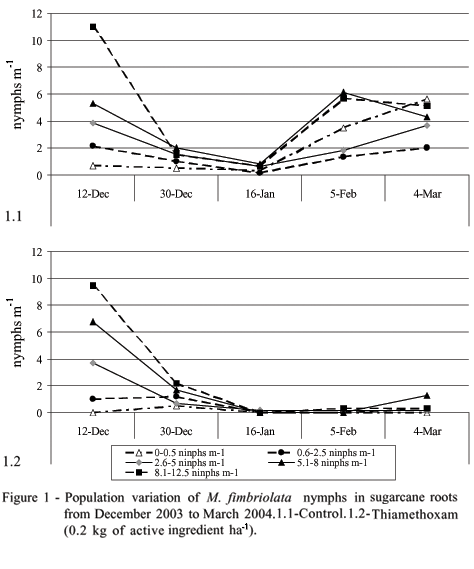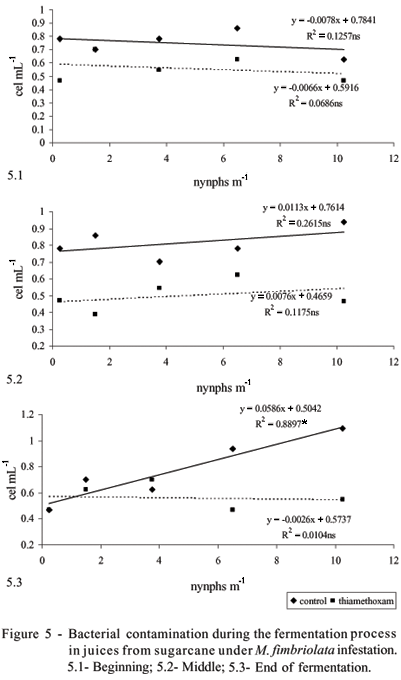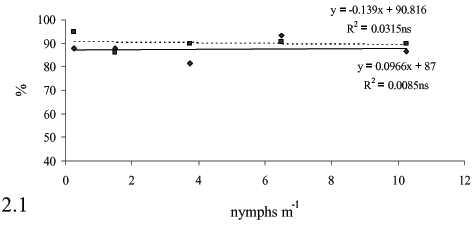The spittlebug (Mahanarva fimbriolata) has become a key pest of the sugarcane crop in Brazil with the increase of green-cane harvesting, causing stalk yield and cane quality losses. This research was undertaken to evaluate the effects of the spittlebug (Mahanarva fimbriolata) on cane quality and juice fermentation. The experiment was arranged in a completely randomized 5 × 2 factorial design, with five spittlebug infestation levels (0-0.5; 0.6-2.5; 2.6-5; 5.1-8; 8.1-12.5 nymphs m-1), controlled or not with thiamethoxam (0.2 kg of active ingredient ha-1). To conduct fermentation, Saccharomyces cerevisiae (fresh and pressed baker's yeast) was inoculated to musts at a concentration of 30 g L-1. Microbiological analyses were performed at the beginning, middle and end of the fermentation process. The alcohol content and total residual reducing sugars were measured in the wine. Spittlebug attack influenced negatively sugarcane quality, yeast cell and bud viability, and wine alcohol content. Insecticide application resulted in higher cane quality and cell and bud viabilities, resulting in increased fermentation yield.
Saccharum spp.; Mahanarva fimbriolata; fermentation process; ethanol production








